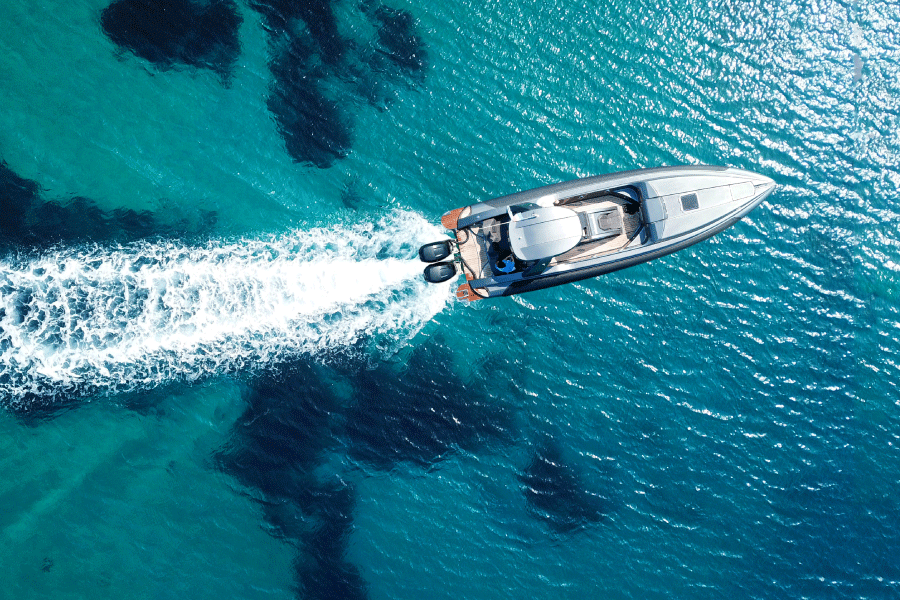
The Role of Marine Engineering in Environmental Sustainability
Marine engineering plays a crucial role in shaping a sustainable future for the maritime industry. With growing concerns over climate change, pollution, and ocean conservation, marine engineers are at the forefront of developing eco-friendly solutions that reduce the environmental impact of shipping and offshore activities.
From energy-efficient ship designs to alternative fuels and emission-reducing technologies, marine engineering is transforming the industry to meet international sustainability standards. In this article, we explore how marine engineering contributes to environmental sustainability and the innovations driving this change.
1. The Environmental Impact of the Maritime Industry
The global shipping industry is responsible for nearly 3% of the world’s greenhouse gas (GHG) emissions, with heavy fuel oil (HFO)-powered vessels being the biggest contributors. Other environmental challenges include oil spills, ballast water pollution, and plastic waste from ships.
🔹 Key Environmental Issues in Maritime Operations:
- Carbon Emissions: Shipping accounts for a significant share of global CO₂ emissions.
- Oil Spills: Accidental spills from ships and offshore rigs can devastate marine ecosystems.
- Ballast Water Pollution: Unfiltered ballast water carries invasive species to new environments.
- Waste Management: Poor disposal of solid waste and sewage pollutes oceans and coastlines.
2. Sustainable Ship Design and Energy Efficiency
Modern shipbuilding techniques focus on energy efficiency and eco-friendly materials to minimize environmental impact.
a) Hydrodynamic Hull Designs
- Optimized hull shapes reduce water resistance, lowering fuel consumption.
- Air lubrication systems create a bubble layer under the hull to reduce friction.
b) Lightweight Materials
- Use of composite materials and high-strength steel improves fuel efficiency.
- 3D printing technology helps in creating lightweight, sustainable ship components.
c) Energy-Efficient Propulsion Systems
- Hybrid Propulsion: Combines traditional engines with electric or renewable energy sources.
- Variable Speed Engines: Adjusts power output based on operational needs, reducing energy waste.
3. Alternative Fuels and Green Energy Solutions
One of the biggest advancements in marine engineering is the shift from fossil fuels to cleaner energy sources.
🔹 Eco-Friendly Fuel Alternatives:
- Liquefied Natural Gas (LNG): Reduces CO₂ emissions by up to 25% compared to conventional fuels.
- Hydrogen Fuel Cells: A zero-emission solution for powering ships with water as a byproduct.
- Ammonia and Methanol Fuels: Emerging as potential carbon-neutral alternatives.
- Biofuels: Made from organic waste and algae, reducing reliance on fossil fuels.
🔹 Renewable Energy Integration:
- Solar Panels: Used for supplementary power in hybrid ships.
- Wind-Assisted Propulsion: Modern sails and rotor sails harness wind energy to cut fuel consumption.
- Wave Energy Harvesting: Technologies are being developed to capture wave motion for energy production.
4. Emission Reduction Technologies
To comply with stricter environmental regulations, marine engineers are adopting innovative emission-reduction technologies.
🔹 Exhaust Gas Cleaning Systems (Scrubbers):
- Removes sulfur oxides (SOx) from engine exhaust, reducing air pollution.
🔹 Carbon Capture and Storage (CCS):
- Captures CO₂ emissions from ship exhaust and stores them safely.
🔹 Energy Recovery Systems:
- Waste heat recovery systems reuse engine heat to generate additional power.
🔹 Ballast Water Treatment:
- Filtration and UV treatment prevent the spread of invasive marine species.
5. Smart Shipping and Digitalization
Advanced technology is improving efficiency and sustainability in the maritime industry.
🔹 Artificial Intelligence (AI) and Big Data:
- AI-powered route optimization minimizes fuel consumption and emissions.
- Predictive maintenance reduces waste and extends equipment lifespan.
🔹 IoT-Based Monitoring Systems:
- Real-time monitoring of emissions and fuel efficiency helps ships comply with regulations.
- Smart sensors detect leaks, reducing oil and chemical spills.
🔹 Autonomous and Electric Ships:
- Self-navigating vessels improve fuel efficiency through AI-driven route adjustments.
- Battery-powered ships reduce reliance on fossil fuels for short-haul transportation.
6. Regulations and Global Sustainability Goals
International organizations are setting stricter environmental policies to drive sustainability in the shipping industry.
🔹 Key Sustainability Regulations:
- IMO 2020 Sulfur Cap: Limits sulfur content in marine fuels to 0.5%, reducing air pollution.
- International Maritime Organization (IMO) Strategy: Targets 50% reduction in GHG emissions by 2050.
- EU Green Deal: Aims for zero-emission ships by 2035.
- MARPOL Convention: Regulates pollution from ships, including oil spills and waste disposal.


